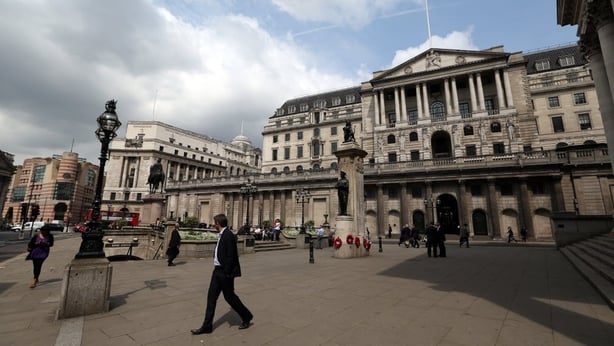UK employers hired many more workers than expected in early 2018, a tentative sign that the economy's weak start to the year may be temporary, as the Bank of England hopes.
Employment rose by 197,000 during the first quarter, the biggest jump since late 2015 and far exceeding the 130,000 consensus expectation of a Reuters poll of economists.
The figures painted a familiar picture of strong growth in jobs and unemployment at its lowest rate in decades.
But they only signal a modest pick-up in pay for most British workers who have been hit by higher inflation since the 2016 Brexit vote.
Annual growth in earnings, excluding bonuses, edged up to 2.9% in the three months to March, as expected in the Reuters poll.
While this was the biggest increase since mid-2015, it represented only a 0.4% increase in pay in inflation-adjusted terms, the Office for National Statistics (ONS) said.
Including bonuses, total pay growth cooled to 2.6% from 2.8% in the three months to February, as expected.
Last week the Bank of England left interest rates on hold, saying it wanted to be sure the economy was bouncing back after barely growing in the first quarter.
In February it had said rates were likely to go up more quickly than it previously thought.

Economists said the strength of hiring in today's figures suggested Britain's economy did not have such a bad start to 2018 as portrayed by the preliminary official data.
The ONS also today published new figures for employment of foreign nationals and for productivity, a long-term problem for the UK economy.
Less than a year before Britain is due to exit the European Union, the ONS said the number of EU nationals employed in Britain fell by 1.2% from a year ago to 2.292 million - the biggest drop in percentage terms for eight years.
Analysts said that labour supply looks set to fall further in the coming months, partly due to an abrupt plateauing in the number of EU citizens in employment in the UK.
The ONS also published figures for the number of people claiming unemployment benefits - once a reliable early gauge of recession that has been undermined to some extent by changes to Britain's welfare system in recent years.
Nonetheless, this showed a 31,300 monthly increase in the number of claimants - the largest rise since July 2011.

